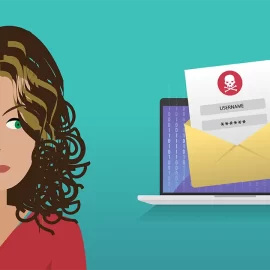
Friendship Dilemma – Charging for Services Rendered
There are many reasons why you should have good friends. Having a friend means having somebody to share a common interest with. Friends can help expand your social circles and contacts, leading to gaining new friends.
A friend is someone to talk to about things ranging from the important to the trivial. But most of all, having a friend means having someone to rely on whenever you need help.
But how much should you charge your friends?
A clash of interests
At the same time, it is innate in our human nature that we would always work for our best interest. Whether that would be negotiating for the highest possible salary or the lowest possible price for goods, we are always looking for ways and deals to make ourselves better off. The problem is, so does everyone else.
So you can expect your friends to do the same? They also would be in a constant lookout for ways to save a dollar or two… hundred. At the same time, you happen to sell something or render a service that your friend needs. Now they approach you (as a friend) to help you out (a.k.a. give stuff for free) because after all, that’s what friends are for, right?
Now, don’t get me wrong! One of the traits of a good friend is when they helps you out in times of need and they expect the same from you. But there is a fine line between “helping out” and “being exploited”. You have to know and draw that line so that your friends would not take advantage your friendship and generosity.
So what happens if your “friend” tries their luck and crosses that line? Do you take into account your friendship and commit to helping them out at your expense? Do you blatantly say no, saving yourself from losses but at the same time endangering your friendship?
If you do decide that it is not feasible for you to work for free but at the same time value your friendship, here are some tips on how to get paid for clients that are your friends – or not helping them at all but still keep the friendship.
Tips on avoiding working for a friend for free
Explain to them what they would get (and more)
This is where you market yourself to potential clients about your abilities and why you are worth their money. The only difference is that you are selling yourself to people who know you on a personal level, so some selling tactics won’t work. This relationship would usually be used to haggle for the lowest possible price possible.
On the other hand though, you can state that because of this personal link, you are driven to put more work and provide more value for their money as opposed to some stranger who would charge the same amount of money, but would only see them as walking paychecks.
Nothing personal, it’s just business
If they continue to try to convince you to work for free, explain to them that you are running a business, not a charity. Giving away stuff or rendering services for free is a bad idea from a businessman’s point of view.
Also, tell them that a “thank you” note does not pay employee salaries, overhead costs or the utility bills. You may offer them a discount though, if you wish. They are your friends after all.
Opportunity costs
This one would be hard to explain to your friends that aren’t entrepreneurs. It basically expounds on the “nothing is free” statement. Even if you fully agree to offer your services to your friends for free, it would still cost something.
The more time spent to repair your friend’s plumbing, shoot their wedding or fix their computer, means more time lost getting paid to do the same thing for strangers. Every minute spent doing something for a friend for free is a minute worth of income lost.
Even if you have no other conflicting plans, you still spend time – a very scarce resource which you can never buy back. A minute of work (paid or not) rendered is a minute of leisure (which you can spend on things like a holiday, chilling out or a family bonding activity) lost.
Learn to say “no”
It may sound harsh, but you have to learn to say no. You may use any or all the reasons stated above on why you have to decline their request for help. Anyway, if they are your true friends, they would understand. They might hate you for a while for not being there when they needed you, but time would eventually heal wounds and cool down heads.
It would also send a message to your other friends that might be thinking of using your friendship to get more “help” from you than what you are willing to give.
Offer to help them out in another way
Refer them to someone else who might be willing to work for free. It would give the impression that you did try to help, just not in the way that they expected. You wouldn’t really gain much from doing this, but it is unlikely you’d lose much either.
Humans are social animals. It does not matter if you have a hundred or a couple of friends, you value the relationship you have with them and it is important to take good care of it. Give each other a helping hand when needed. But be careful, you might end up giving your arm up as well!
SOURCE: You The Entrepeneur



